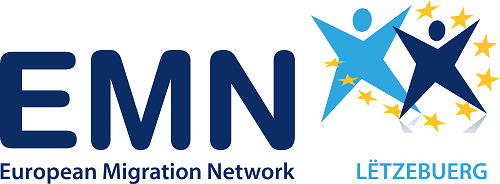The new Umbrella Inform completes the joint EMN and OECD Inform series on the impact of COVID-19 on migration and asylum in the EU Member States and non-EU OECD countries throughout 2020.
The COVID-19 pandemic has created profound changes in all areas of migration and asylum. EU Member States and non-EU OECD countries have made many efforts to keep the pandemic under control, entailing impacts such as border closures, travel restrictions, and the need to introduce sanitary measures. Beginning with the pandemic’s impact on permits and entry conditions, the Inform reports on contingency measures adopted by EU and non-OECD countries in an effort to keep systems operational and to mitigate the impacts on migrants and citizens to the extent possible. For instance, the reduction of in-person immigration related services was largely replaced by electronic or postal communication to ensure continuity in processes.
In EU Member States and Norway, the automatic extension of residence permits or the removal of the obligation to leave in some cases, were some of the measures taken to reduce the impact of COVID-19. Most EU Member States provided financial support for migrant workers affected by the pandemic, either due to unemployment or loss of income, and made COVID-19 related healthcare services available to all migrants.
Although restrictions were imposed on the admission of migrants, continued admission was granted for jobs deemed essential in an effort to meet labour market needs, notably in areas of health, agriculture, and transport. New digital tools have been critical in providing asylum and migration services, although the Inform notes that it has also raised new challenges. In the area of asylum, for instance, providing effective and fair application and appeals processes has become more complicated by having remote interviews, and depends largely on the applicants’ ability to use and access electronic means. Both the requests for asylum and the number of returns carried out have reduced in 2020 as a result of the pandemic.
The landscape also changed for international students, where in-person attendance was discouraged if not suspended altogether. Many students returned home, and in some cases, were able to continue their studies remotely, while processes to renew residence permits were moved online.
The joint research shows that public authorities have acted swiftly to introduce new measures or adapt their systems to confront the migration challenges caused by the pandemic, or in some cases, to simply continue to use pre-existing on-line systems. While the long-term impacts are hard to predict, the last chapter of the inform looks towards future migration policies and how these might be shaped in the context of the digitalisation of migration management, the need for bio-secure borders, and the expansion of teleworking digital nomads.
French translation of the Inform was kindly provided by EMN France.

